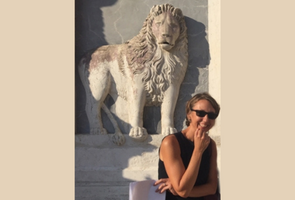
Psychedelics (Opium) and Pyschology in Renaissance Florence?? Come learn about the surprising end-of-life medicine practices from Prof. Cynthia Klestinec (Miami University) at her talk on "Dying Well in Renaissance Venice," from 1:30-3:00 p.m., Thursday, March 16 in room YH170. The talk is part of the History Café/café historique is funded by the Albert Tucker Speaker Series. Come meet other History profs and students interested in History!
The sixteenth-century nobleman Alvise Cornaro suggested that a good life would lead to a good death, one that was as quick as it was painless. The reality, however, was much more complicated. Taking up some of those complications, this presentation considers how early modern physicians expanded their role in end-of-life care, expanding the practices of palliative care at a time when death was increasingly medicalized. In Venice, physicians were at the deathbed long before the eighteenth century, when traditional histories of death cite their prominence. They provided palliative care to their patients that diminished physical suffering, (especially the growing importance of opium). However, they also developed palliative measures that addressed the psychological suffering of their patients; this medicine of the mind recovered ancient philosophical notions of the good death and developed a range of consolations for the worldly concerns, fears, and anxieties of patients. Considering this development, this presentation will also focus on the ways that this medicine of the mind - medicina mentis - stood in contrast and in opposition to the medicine of the soul, offered by priests in the form of the sacraments, known also as the cura animarum.
Cynthia Klestinec is a professor of English and coordinator of the medical humanities minor at Miami University. She studies the history of medicine in the Renaissance and is the author of Theaters of Anatomy: Students, Teachers, and Traditions of Dissection in Renaissance Venice (Johns Hopkins, 2011) and Professors, Physicians, and Practices in the History of Medicine (Springer, 2017).

